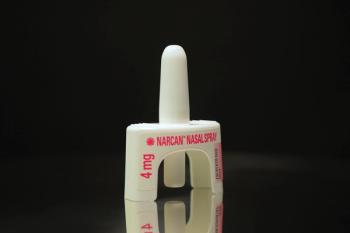
Semaglutide May Protect Against Opioid Overdose in OUD
Investigators used electronic health record data to compare outcomes of semaglutide vs other antidiabetic medications.
Semaglutide therapy may be an effective way to protect against opioid overdose in individuals with opioid use disorder (OUD), according to a research letter published in JAMA Network Open.1
Due to the continued high rates of drug overdose fatalities in the US—an estimated 107,543 deaths in 2023, according to provisional CDC data—it is crucial to continue investigating medications that may be effective in treating opioid use disorder. According to the results of a 2022 animal model study published in Brain Research Bulletin,2 glucagon-like peptide-1 (GLP-1) receptor agonist liraglutide effectively reduced cue- and drug-induced heroin seeking behavior in rats. Similarly, “anecdotal reports of reduced drug craving” in individuals taking
Investigators conducted an emulation target trial to compare semaglutide to other antidiabetic medications—insulin, metformin, dipeptidyl-peptidase-4 inhibitors (DPP-4is), sodium-glucose cotransporter-2 inhibitors (SGLT2is), suflonylureas, thiazolidinediones, and other GLP-1 receptor agonists (tirzepatide, liraglutide, and dulaglutide—in patients with type 2 diabetes and OUD at risk of opioid overdose.
The study cohort included 33,006 eligilbe patients, 3034 of whom were prescribed semaglutide (mean age, 57.4±11.0 years; 56.5% women); the remaining patients were prescribed other antidiabetic medications. Investigators compared each antidiabetic medication class in patients with comorbid T2D and OUD.
Over a 1-year follow-up period, semaglutide was associated with a significantly lower risk of opioid overdose vs other antidiabetic medications, including other medications in the GLP-1 class (HR, 0.32; 95% CI, 0.12-0.89 to HR, 0.58; 95% CI, 0.38-0.87).
Limitations of the study include the potential for unmeasured or uncontrolled confounders, biases, and other limitations inherent to electronic health record-based observational studies.
“Further research is warranted to investigate the underlying mechanisms, and randomized clinical trials are necessary to corroborate the clinical effects on OUD,” the researchers concluded.
The potential applications of semaglutide are wide-ranging beyond obesity and T2D: manufacturer Novo Nordisk is currently evaluating the drug for use as a once-weekly treatment for metabolic dysfunction-associated steatohepatitis (MASH) and a once-daily treatment for Alzheimer disease.3 Elsewhere, it is being investigated for treatment of alcohol use disorder,4 cannabis use disorder,5 psychosis, depression,6 and Parkinson disease.7
READ MORE:
References
- Wang W, Volkow ND, Wang QQ, et al. Semaglutde and opioid overdose risk in patients with type 2 diabetes and opioid use disorder. JAMA Netw Open. 2024;7(9):e2435247. Doi:10.1001/jamanetworkopen.2024.35247
- Dose titration with glucagon-like pepetide1 agonist, liraglutide, reduces cue- and drug-induced heroin seeking in high drug-taking rats. Brain Res Bull. 2022;189:163-173. Doi:10.1016/j.brainresbull.2022.08.022
- R&D pipeline. Novo Nordisk, Accessed September 26, 2024.
https://www.novonordisk.com/science-and-technology/r-d-pipeline.html - Wang W, Volkow ND, Berger NA, Davis PB, Kaelber DC, Xu R. Associations of semaglutide with incidence and recurrence of alcohol use disorder in real-world population. Nat Commun. 2024;15(1):4548. Doi:10.1038/s41467-024-48780-6
- Wang W, Volkow ND, Berger NA, Davis PB, Kaelber DC, Xu R. Association of semaglutide with reduced incidence and relapse of cannabis use disorder in real-world populations: a retrospective cohort study. Mol Psychiatry. 2024;29(8):2587-2598. doi: 10.1038/s41380-024-02498-5
- De Giorgi R, Koychev I, Adler AI, et al. 12-month neurological and psychiatric outcomes of semaglutide use for type 2 diabetes: a propensity-score matched cohort study. EClinicalMedicine. 2024;74:102726. doi:10.1016/j.eclinm.2024.102726
- Mahapatra MK, Karuppasamy M, Sahoo BM. Therapeutic potential of semaglutide, a newer GLP-1 receptor agonist, in abating obesity, non-alcoholic steatohepatitis and neurodegenerative diseases: a narrative review. Pharm Res. 2022;39(6):1233-1248. doi:10.1007/s11095-022-03302-1
Newsletter
Pharmacy practice is always changing. Stay ahead of the curve with the Drug Topics newsletter and get the latest drug information, industry trends, and patient care tips.























